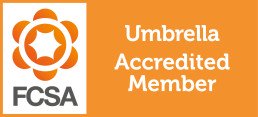Share this article

As you get back into the swing of things in the new year, you may wonder what key tax dates and deadlines you must be aware of in 2024. We’ve compiled a helpful timeline of the most important accounting dates to help you stay on top of your tax obligations in 2024.
Key accounting dates and deadlines
January
1st January – Corporation Tax payment deadline
The Corporation Tax payment deadline applies to limited companies with an accounting year end of 31st March.
6th January – National Insurance Cut
The main rate of Class 1 employee National Insurance Contributions is cut to 10%.
31st January – Self Assessment Tax return deadline
This is the final date for those required to complete and file a self-assessment tax return online.
31st January – First payment on account and balancing payment due
The first Income Tax and National Insurance payment on account in relation to your self-assessment tax return and balancing payment are due. Payments on account are advance payments on your next year’s self-assessment tax bill. You’ll need to make a payment on account if less than 80% of your income is paid at source and your tax bill is over £1,000. Any late payments will incur an interest charge on the amount due.
31st January – Capital Gains Tax payment deadline
Capital Gains Tax may apply if you’re selling or have sold assets. The amount you owe will form part of your balancing payment. If you’ve sold residential property that isn’t your main home, the gains must be reported and paid to HMRC within 60 days of the sale.
March
6th March – Spring Budget 2024
The Chancellor, Jeremy Hunt, has confirmed this date for the Spring Budget 2024. The Budget summarises economic performance, sets projections for the year ahead, and unveils proposed tax and spending amounts.
31st March – Annual Tax on Enveloped Dwellings (ATED) returns
The deadline for amending ATED returns and settling any outstanding tax for the period from 1st April 2022 to 31st March 2023.
You must revalue your property every five years in line with ATED legislation. Please note that the chargeable period from 2023 to 2024 is a revaluation year. The amount you’ll need to pay is worked out using a banding system based on the value of your property.
31st March – Corporation Tax return deadline
If you have a limited company with an accounting year end of the 31st March, you must submit a Corporation Tax return by this date.
April
1st April – Increase in National Living Wage and Minimum Wage
The National Living Wage and Minimum Wage hourly rate will increase to £11.44. Individuals in the 18-20 age bracket will see an increase to £8.60 per hour.
1st April – 15 hours of free childcare for 2-year-olds
Reforms to provide 30 hours of free childcare to all children under the age of 5 (for eligible parents) means 15 free hours of childcare for working parents of 2-year-olds will be introduced.
1st April – Research & Development tax relief
For accounting periods beginning on or after 1st April, a new merged R&D tax expenditure credit scheme will replace the current R&D tax relief for SMEs and RDEC. The threshold for being an R&D-intensive company reduces to 30% for accounting periods beginning on or after this date.
5th April – Pension contributions deadline
This is the deadline for making pension contributions that qualify for tax relief in the 2023/24 tax year.
5th April – Capital Gains Tax exemption
This is the last day you can make disposals and benefit from the 2023/24 Capital Gains tax-free annual allowance.
5th April – Inheritance Tax
This is the final opportunity to take advantage of the IHT tax-free gifting for the 2023/24 tax year, along with any additional exemptions from 2022/23.
5th April – Class 2 National Insurance Contributions
This is the voluntary Class 2 National Insurance Contributions deadline for 2017/18.
6th April – New Tax Year
There are various planned updates and any tax changes which will come into effect, and these include:
- The dividend tax-free allowance will halve to £500.
- The Capital Gains tax allowance will be reduced to £3,000.
- Class 2 National Insurance Contributions for the self-employed will be abolished.
- Class 4 National Insurance Contributions for the self-employed will be lowered to 8%.
- The pension lifetime allowance will be scrapped, ending the cap to the amount you can save in a pension before tax charges apply.
- ISA reforms mean people can pay into multiple accounts of the same types of ISA in a tax year.
- Basis period reform will be introduced, meaning income tax for the self-employed is taxed on the trading profits arising within the year.
- There will be an increase in state benefits, and pensioners will see an 8.5% rise in their state pension income.
- Cash basis becomes the default method by which the self-employed and partnerships record expenses and revenue. Interest, turnover and loss relief restrictions are removed.
- Changes to the gross payment status test for the Construction Industry Scheme will take effect, and HMRC will have the authority to revoke gross payment status in instances of severe non-compliance.
30th April – Annual Tax on Enveloped Dwellings returns
The deadline for submitting ATED returns and making tax payments for the period from the 1st April 2024 to the 31st March 2025 is the 30th April 2024. It is also the deadline to submit a relief declaration return.
May
31st May – Pay As You Earn (PAYE) P60 deadline
The deadline for issuing employees with their annual P60s and any necessary details regarding benefits-in-kind.
July
6th July – Deadline for filing P11D and P11D(b) forms
The deadline for filing P11D and P11D(b) forms. To report the value of benefits you’ve provided to directors and employees. You also have to provide the P11D forms to your relevant staff.
19th July – Non-electronic Class 1A National Insurance Contributions deadline
The non-electronic deadline for making payment on any outstanding Class 1A National Insurance Contributions for the tax year ending on the 5th April 2024.
22nd July – Electronic Class 1A National Insurance Contributions deadline
The electronic deadline for making payment on any outstanding Class 1A National Insurance Contributions for the tax year ending on the 5th April 2024.
31st July – Second payment on account due
The second (and final) Income Tax and National Insurance payment on account is due based on your 2022/23 tax year earnings.
October
5th October – Deadline to register for self-assessment
If you have never completed a self-assessment tax return before, you need to register for self-assessment. Once you register, you will receive a Unique Taxpayer Reference (UTR) number and an activation code, which you require to file a tax return.
31st October – Deadline for postal self-assessment tax return
If you prefer to submit your tax return via post instead of filing it online, you must submit it by the 31st October. If you miss this deadline, submitting an online tax return instead is still possible, which must be filed by the 31st January.
December
30th December – Opt into PAYE
If you file your tax return online and have earnings subject to PAYE, you may have the option to have any outstanding tax collected through your tax code over the following year. This option is only available if your tax bill is under £3,000 and you file your online return by a specific date.
31st December – Deadline for filing annual accounts
If you have a limited company with an accounting year end of the 31st March, the 31st December is the deadline for filing your company’s annual accounts.
VAT return deadlines
Making Tax Digital for VAT requires all VAT-registered businesses to file a VAT return four times a year. The commonly used VAT return dates are:
- 1st January – 31st March
- 1st April – 30th June
- 1st July – 30th September
- 1st October – 31st December
Each quarterly VAT return is due for filing one month and seven days after the end of the quarterly period. For example, VAT returns covering the first quarter (1st January – 31st March) must be filed to HMRC by the 7th May.
Contact Churchill Knight today to find out more about our accountancy service
Have you recently taken the plunge into contracting, or are you a seasoned contractor looking to switch accountants? Churchill Knight has over 25 years of experience supporting contractors and freelancers with their accountancy. If you are considering setting up a limited company or would like to discuss our limited company accountancy service, please call our expert team on 01707 871622. You can also request a callback for a time that suits you, and a team member will be in touch.
About Churchill Knight
Founded by an IT Contractor in 1998, Churchill Knight has become one of the most respected contractor accountants in the UK. We’ve helped over 20,000 contractors with their accountancy requirements. As well as our accountancy services, we also have an industry-leading PAYE umbrella company and dedicated in-house personal tax department. Whichever service you choose, you can move forward with complete peace of mind. We are proud of the reputation we’ve built over the years, and our FCSA accreditation proves how committed we are to compliance within our sector. Keep reading…


We're regularly adding new, helpful content
The Churchill Knight blog is regularly updated with helpful content for contractors and freelancers – especially articles that answer the most frequently asked questions about umbrella companies! Please pop back shortly to see the latest articles written by Andrew Trodden (Marketing Manager) and Clare Denison (Marketing Executive).
